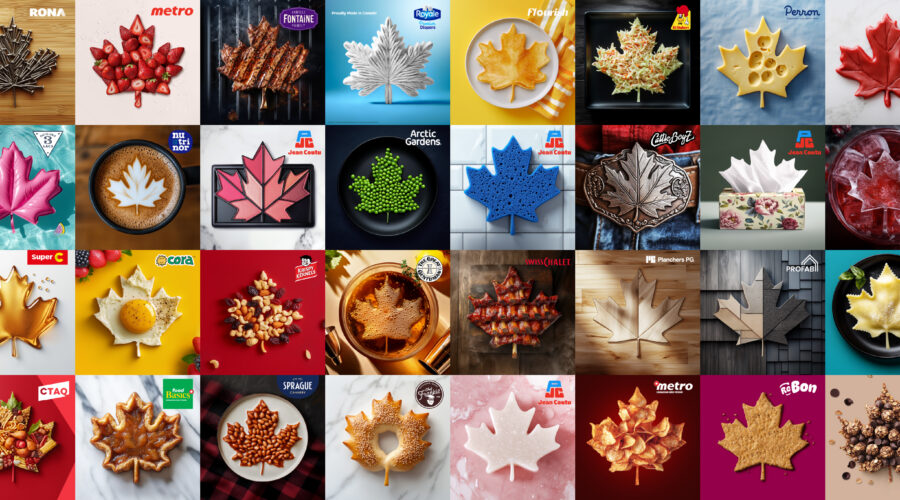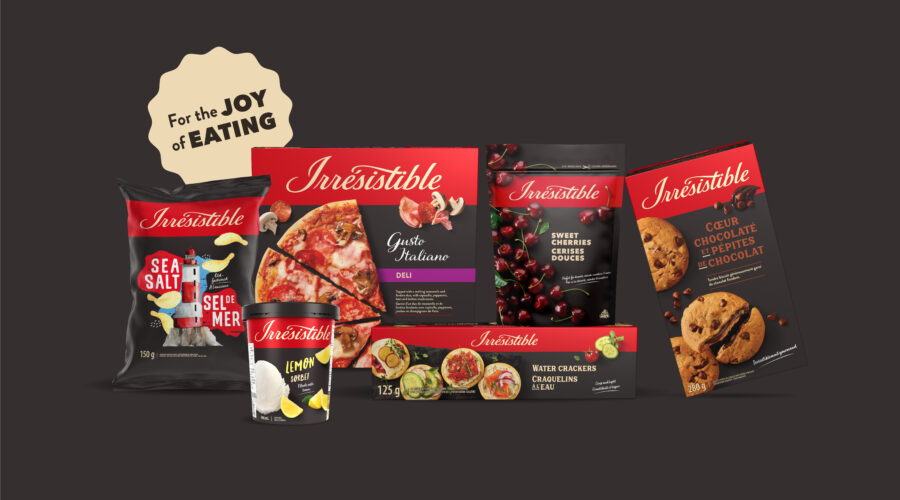“The reports of my death are greatly exaggerated” – Mark Twain.
There has been plenty of buzz in the media about the controversy about whether or not the plant-based industry is on the decline. Wherever you stand on the Carnivore to Vegan spectrum, one thing is certain – plant-based is a highly sustainable option for our planet, a social and environmental issue that is not a fleeting trend. Others choose this lifestyle because of its perceived health benefits. As a result, we are seeing many meat-eaters making a conscious effort to introduce more plant-based proteins into their diet.
We went to the London Exhibition of Plant-Based World to assess the category ourselves. The London Exhibition of Plant-Based World was an enlightening journey into the current and future state of the plant-based world. 200 exhibitors from Europe, the US, and Asia gathered to celebrate the advancements and developments in this rapidly emerging product category.
Here were our key take-aways from the expo:
Plant-Based Meat, Fish, Chicken, and Dairy protein alternatives are here to stay.
Somewhat emboldened by the media’s portrayal of the demise of plant-based meat alternatives, dozens of manufacturers have come to the forefront, including our client Omni Foods, with the commitment to learn from the Beyond Meat experience and provide better and more creative plant-based alternative products and brands to the consumer. The consensus at the recent Plant-Based World Expo in London, England, was that some early to market plant-based protein alternatives were replete with dirty ingredients that didn’t meet the taste expectations of consumers. Product innovators such as Planted, Wicked, Unconventional, and Shicken, have developed remarkable tasting and relatively “clean ingredients” providing plant-based protein alternatives to consumers. The Expo was overwhelmingly composed of creative and innovative marketers and manufacturers offering plant-based meat, fish and dairy alternatives to their discerning market.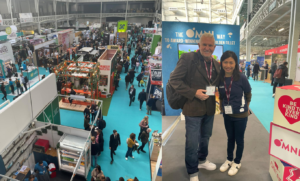
Innovation exponentially exceeds R&D innovation in conventional food products and CPG companies.
Innovation and creativity are the very bases for this category. As an emerging category, plant-based protein alternatives compete against single-ingredient alternatives: beef, chicken and fish. Imitating the taste and texture of these traditional foods is no easy feat. First-to-market brands did so with some success but at the expense of creating an extensive and fairly “dirty” ingredient list. These lengthy ingredient lists that you almost needed a science degree to understand undermined one of the primary reasons consumers are turning to plant-based options …the health benefit. Many of the new and improved entries at the Plant-Based Expo introduced products with as little as four ingredients to simulate the original, and did so with great success. The category is moving hard in this direction and has become highly aware of the “ingredient skeptical” nature of their core consumer.
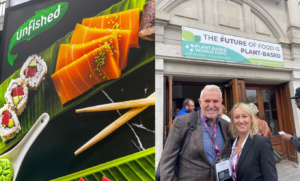
Taste, transparency & sustainability will continue to be the pillars of the category.
Some early-to-market products ignored the desperate importance of delivering equal to or better than taste profiles with their products. New entries and revised product development efforts are landing dozens of brands into this already-congested category that rival their original protein source. They have largely replicated taste and flavour profiles of the historical protein sources but are now using plant-based products as the deliverable. Transparency is the battle cry of the plant-based movement. Honest and forthright communications are essential. On the note of transparency, Swiss-based “Planted” recently completed their manufacturing facility in Kemptthal, Switzerland. The building’s walls are completely glass allowing any passerby to observe what’s going on inside. Carbon neutrality, reducing the ecological footprint on the planet, and creating a better world continue to be essential ingredients of this category.
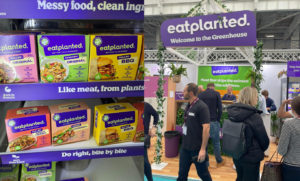
Packaging and design are largely behind the traditional CPG world.
The day of simply announcing your product is “plant-based” and assuming consumers will flock to your brand is gone. Plant-based products like “Wicked”, “Shicken”, and “SWISH” have developed solid design systems that rival those of the big brand CPG players. Most other players in the category lack the branding and design sophistication needed to compete in a complex and cluttered retail environment. Design-led brands with clean ingredients and brilliant taste profiles will continue to lead and win the day.
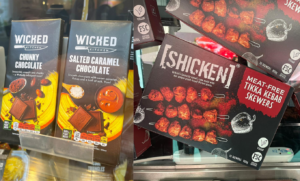
Imitation is not always the sincerest form of flattery.
From “Oggs” (liquid egg replacement), to Sheese (cheese replacement) to Shicken (chicken replacement), to “Nilky” (milk substitute) and other new brand entries in this category are tripping over themselves trying to be clever and imitate the based original protein sources they are parroting. “Confusion” is one of the acid tests regulatory agencies use for accepting trademark registrations and product descriptors. Some manufacturers are running dangerously close to the law in imitating and indeed borrowing the clothing of the parent protein source. In an effort to protect their resident dairy, meat and fish industries, countless countries like Germany and France are swiftly moving to outlaw using terms like Milk, Cheese, or Burger in the description or the descriptive branding of plant-based alternatives. Winners in this category will be those that build stand-alone brands that link to the parent protein source but don’t abuse the privilege.
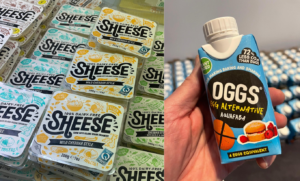
Originality will prevail and win the day
The goal will be originality with unique consumer benefits. “SWISH” cocktails from the UK are delightful, creative, effervescent alcohol and alcohol free plant-based beverages that rival other beverage options, touting flavours like Piña Colada Spritz with a fun ingredient list: premium aged rums, clarified pineapple juice, toasted coconut, and “the Dreams of Yacht Sailing Under Blue Sky”! French plant-based cheese manufacturer, “Les Nouveau Affineurs” (literally translated as The New Ripeners), may borrow the clothing of the traditional French equivalent but uses its own language and delivers a truly remarkable “brie alternative”. Then “Blue Butcher” leverages a unique brand name and design system to move them into the plant-based space and align with the seafood category it is attempting to replicate. Italy’s “Unconventional” leverages a unique brand name with exceptional product development to hold the show’s top spot of best-tasting. “Unconventional’s” graphics have a way to go to catch up to the quality story of this brand. Denmark’s “Cavi·Art®” brand is a plant-based caviar alternative that sells for $15 for 3.5 ounces versus up to hundreds for 5 grams of sturgeon roe – not killing fish and saving your indulgence budget. At the end of the day, we’ll be seeing more and more plant-based alternatives that stand on their own two feet and carve out unique and ownable market positions.
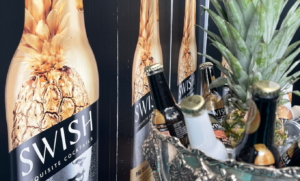
Mr. Twain’s words couldn’t be more appropriately used in the context of the plant-based protein alternative business. This is not a dead or dying industry but rather one of the forefront of fundamental change and growth.
-Thomas Pigeon, CEO, Pigeon Brands Inc.
